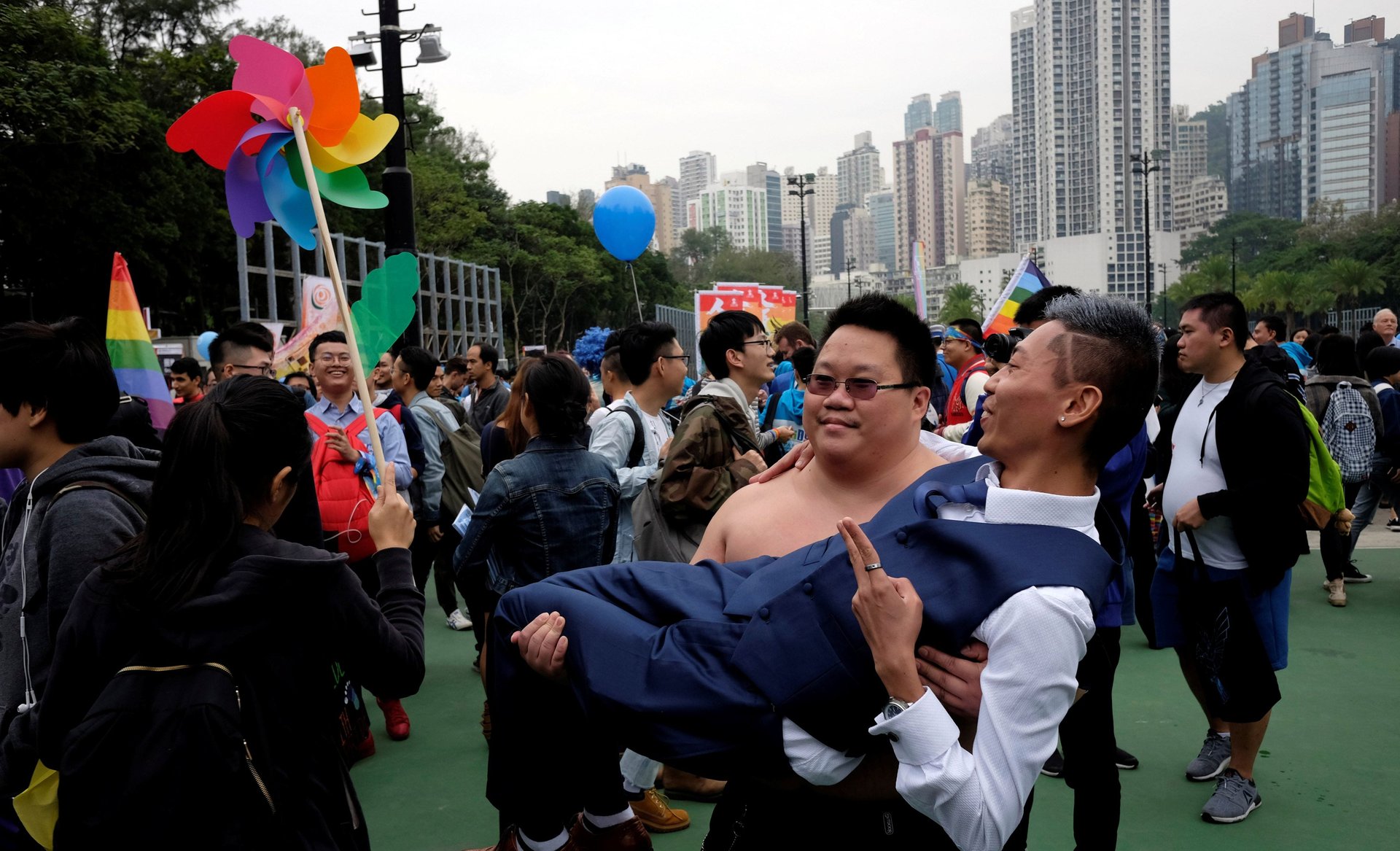Hong Kong will now allow gay expat couples to get spousal visas
The Hong Kong government said today (Sept. 18) that it would grant dependant visas to legally recognized gay couples the same way it does for married heterosexual couples.


The Hong Kong government said today (Sept. 18) that it would grant dependant visas to legally recognized gay couples the same way it does for married heterosexual couples.
The new policy, which comes into effect tomorrow (Sept. 19), follows a historic ruling in July by Hong Kong’s Court of Final Appeal, which found that a British woman, known only as QT, faced “irrational” discrimination by immigration authorities in not being awarded a dependant visa to accompany her female partner, with whom she was in a legally recognized civil union, to Hong Kong.
The government’s decision marks an important victory for LGBT rights in the city, and is particularly significant as the Hong Kong government has on multiple occasions stymied the development of such rights. In QT’s case, the government appealed the Court of Appeal’s ruling in favor of QT in 2017, which resulted in July’s ruling by the Court of Final Appeal. In May 2017, a Hong Kong court granted spousal benefits to the same-sex partner of a civil servant, only for Hong Kong’s department of justice to appeal it weeks later.
In the face of stiff government opposition to advancing LGBT rights, global financial firms in Hong Kong have played a key role in advocating for QT’s case and for progressive LGBT rights more broadly, on the grounds that it would help Hong Kong-based firms attract top talent.
However, in its statement regarding the policy change today, the Hong Kong government stressed that the decision does not signify any move toward recognizing same-sex marriages or civil unions, now or in the future.
Michael Vidler, a lawyer representing QT, said that even after today’s decision, the city lags behind “all those countries to which Hong Kong compares itself favourably” with regards to gay rights, as many other similar jurisdictions have already legalized same-sex marriages or partnerships. “They cannot see the writing is on the wall,” he added.